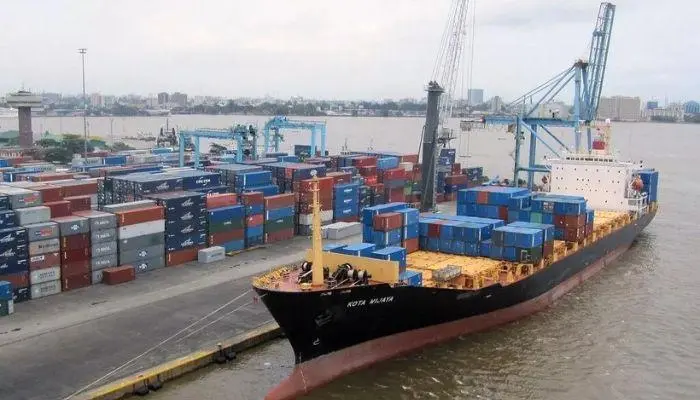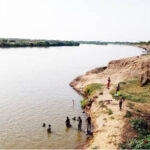In a disappointing example of the national malaise, the Baro River Port in Niger State commissioned by former President Muhammadu Buhari on February 19, 2019, remains dormant and inaccessible.
The port, which is on the banks of the River Niger, was executed by a Chinese firm at the cost of N5.8bn. It has a cargo stacking yard of 7,000 square metres, a transit shed of 3,600 square metres and an estimated capacity of 5,000 Twenty-foot Equivalent Unit (TEU) at a time.
Spokesman of the National Inland Waterways Authority (NIWA), Tayo Fadile, explained at the commissioning that the port was fitted with a mobile harbour crane, transit shed and an administrative block, adding that, “It is equipped with facilities such as water hydrant system, water treatment plant, reach stacker, 100KVA power generating set and three forklifts of various tonnages.”
The port was heavily used during the colonial era, but its fortunes changed about three decades ago. Successive governments expressed interest in bringing it back to life but failed to walk the talk until the dredging of the Lower River Niger was launched by late President Umaru Musa Yar’Adua on December 1, 2008. The dredging was inaugurated on September 10, 2009, in Lokoja, Kogi State, with a three-year completion plan.
In August, 2014, former President Goodluck Jonathan declared at an international conference and exhibition organised by NIWA in Lagos that the dredging of the 527km of the Lower River Niger from Warri, Delta State, to Baro had been completed. And on January 19, 2019, President Buhari inaugurated the new Baro River Port, drummed to create some 2,000 direct jobs and many more indirect jobs as part of effort to boost the functionality of the dredged Lower River Niger project.
But it seemed that the functionality of the port was programmed for failure, as subsequent events showed that it was a project gone awry in execution.
Despite official declarations, no barge or cargo ship has ever been able to haul goods to and from the port.
The non-functionality of the port isn’t surprising because there is still no road network linking it with any federal or state highway. And till date, roads from other parts of Niger and Kogi states to Baro are impassable, making it difficult to move goods to and from the port.
We, at Daily Trust, call for the construction of durable roads leading to the port and rehabilitation of all access roads, especially the deplorable 55km Baro-Katcha-Agaie and the Baro-Muye roads linking Gegu on the Abuja-Lokoja Expressway which have become a nightmare for commuters, especially during the rainy season.
The contract for the Baro-Katcha-Agaie road was awarded in 2009, but revoked in 2012, due to alleged failure on the part of the contractor to deliver the job on time.
However, the project was re-awarded a few months to the 2015 general elections to an Indian firm, GR Building and Construction Nigeria Limited, at the cost of N17.5bn, with a 12-month completion period. It is time to consider the road as an urgent issue of national importance.
We also call for the reactivation of the functional railway network linking Baro with Minna as part of ways to open up the evacuation of goods to and from the port. The rail network, a standard gauge line put in place by the colonialists to aid the movement of goods to the hinterlands, was built around 1911, but became moribund in early 1970.
The rejuvenated railway line needs to be reintegrated into the national rail network as a veritable way to evacuate farm produce and mineral resources to other parts of the country and neigbouring countries.
A functional Baro Port will lead to the opening up of communities along the river to vessels, increase commerce and trading activities, just as it will provide an alternative source of transportation.
Moreover, NIWA should get serious and work with stakeholders to ensure that the port works, and urgently too. This should include the dredging of the Lower River Niger to make it possible for big carriers to berth at the Baro Port.
This will serve as backbone for inland navigation and a major highway for trade such that many industrial centres can develop along the banks. In addition, tourist landmarks can be developed along the route.
We also call on the Niger State Government to execute its planned Baro Smart International Port City, for which it has already acquired 728 square kilometres.
The idea of the Baro Port should neither remain a pipe dream nor should the commissioning end up as a rhetorical campaign gimmick. After all, if the waterway from the Lower River Niger leading to the Baro Port is well-dredged, with roads and rail networks functional, it will have multiplier effects on the national economy and everyone will benefit from it.




